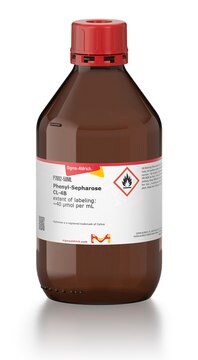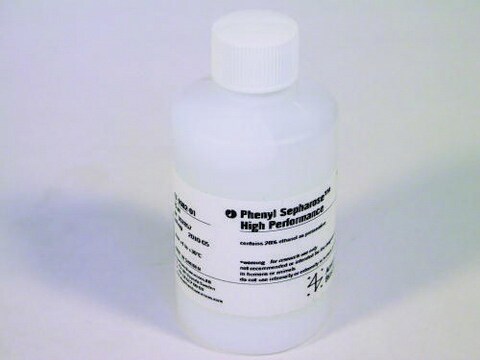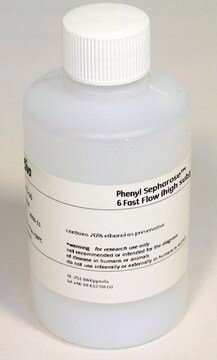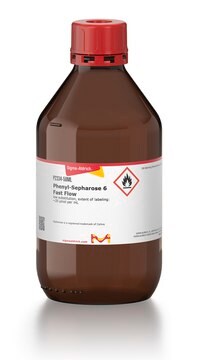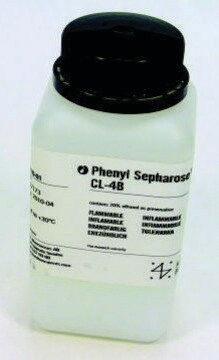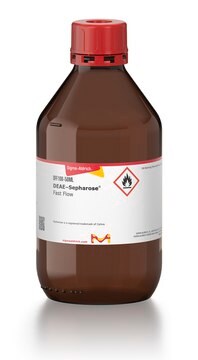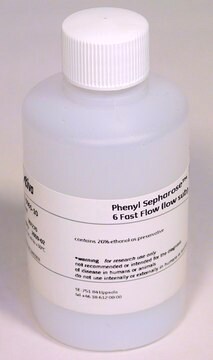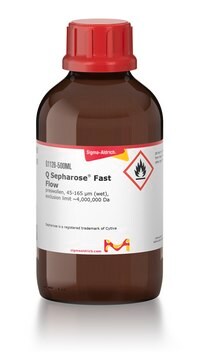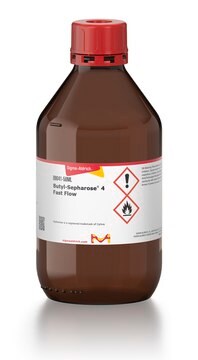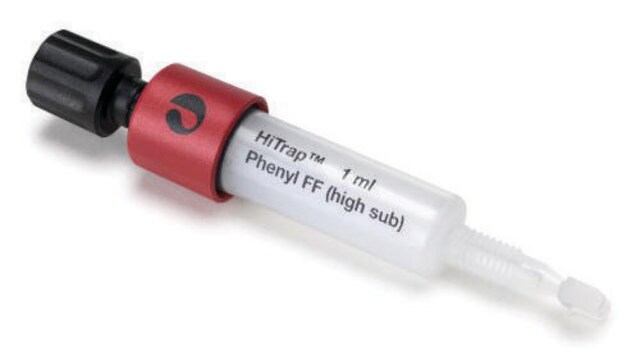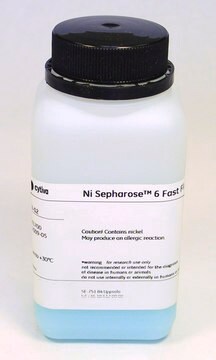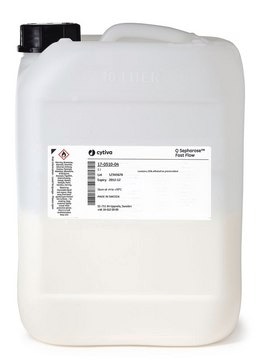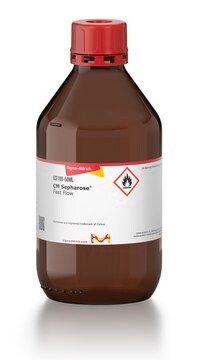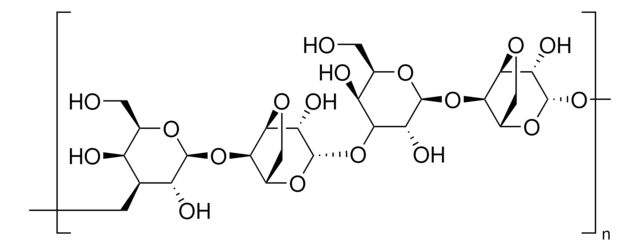P2459
Phenyl-Sepharose 6 Fast Flow
high substitution, extent of labeling: ~40 μmol per mL (high substitution)
Synonym(s):
Phenyl-Agarose
Sign Into View Organizational & Contract Pricing
All Photos(1)
About This Item
Recommended Products
form
suspension
extent of labeling
~40 μmol per mL (high substitution)
matrix
agarose, 6% cross-linked
matrix activation
epichlorohydrin
matrix attachment
ether
matrix spacer
3 atoms
particle size
45-165 μm
storage temp.
2-8°C
Looking for similar products? Visit Product Comparison Guide
General description
P2459-200ML′s updated product is GE17-0973-05
Application
Phenyl Sepharose™ is used in protein chromatography, affinity chromatography, hydrophobic interaction media, resins and separation media. Phenyl Sepharose™ has been used in studies that contributed to improving industrial applications in additives in detergents and feed industries. Phenyl Sepharose™ has also been used to study microbial communities inhabiting hypersaline environments.
Physical form
Suspension in 20% ethanol
aqueous ethanol suspension
Legal Information
Sepharose is a trademark of Cytiva
Related product
Product No.
Description
Pricing
signalword
Warning
hcodes
Hazard Classifications
Flam. Liq. 3
Storage Class
3 - Flammable liquids
wgk_germany
WGK 3
flash_point_f
104.0 °F
flash_point_c
40 °C
Choose from one of the most recent versions:
Already Own This Product?
Find documentation for the products that you have recently purchased in the Document Library.
Customers Also Viewed
Frank J Ruzicka et al.
Biochimica et biophysica acta, 1774(2), 286-296 (2007-01-16)
A gene eam in Clostridium difficile encodes a protein that is homologous to lysine 2,3-aminomutase (LAM) in many other species but does not have the lysyl-binding residues Asp293 and Asp330 in LAM from Clostridium subterminale SB4. The C. difficile protein
<I>Candidaguilliermondii</I> grows on rare pentoses ? implications for production of pure xylitol.
Granstrom, T., et al.
Biotechnology Letters, 24, 507-510 (2002)
Dawei Chen et al.
Biochemistry, 45(42), 12647-12653 (2006-10-18)
Lysine 2,3-aminomutase (LAM) from Clostridium subterminale SB4 catalyzes the interconversion of (S)-lysine and (S)-beta-lysine by a radical mechanism involving coenzymatic actions of S-adenosylmethionine (SAM), a [4Fe-4S] cluster, and pyridoxal 5'-phosphate (PLP). The enzyme contains a number of conserved acidic residues
K A Rye et al.
The Journal of biological chemistry, 270(1), 189-196 (1995-01-06)
The effect of cholesteryl ester transfer protein (CETP) on the size, composition, and structure of spherical, reconstituted HDL (rHDL) which contain apolipoprotein (apo) A-I as their sole apolipoprotein has been studied. Spherical rHDL were incubated with CETP and Intralipid for
K A Rye et al.
The Journal of biological chemistry, 271(8), 4243-4250 (1996-02-23)
The effect of sphingomyelin (SPM) on the structure and function of discoidal and spherical reconstituted high density lipoproteins (rHDL) has been studied. Three preparations of discoidal rHDL with 1-palmitoyl-2-oleoyl phosphatidylcholine (POPC)/SPM/unesterified cholesterol (UC)/apolipoprotein (apo)A-I molar ratios of 99.6/0. 0/10.2/1.0, 86.0/13.6/10.8/1.0
Our team of scientists has experience in all areas of research including Life Science, Material Science, Chemical Synthesis, Chromatography, Analytical and many others.
Contact Technical Service